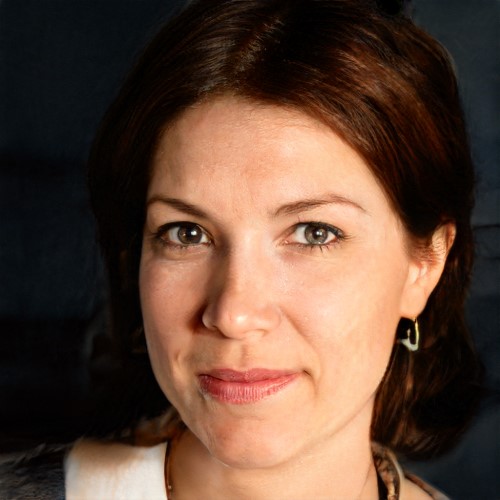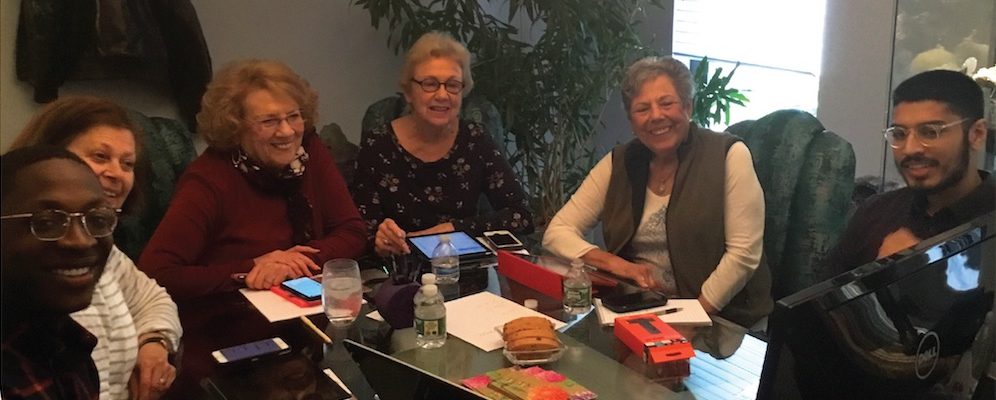Liz Hamburg’s father, Morton, has always been an early adopter of technology. He had email before she did, bought Hamburg her first Amazon Alexa and is always purchasing the latest gadgets from Best Buy next door.
But as Morton has gotten older and had more trouble with his vision, hearing and balance, he has needed more and more help understanding his technology, and more technology in general to remain safe, independent and engaged.
This problem quickly made Hamburg realize there was not a reliable and affordable service to help the elderly population use and understand the technology the need daily.
“THIS IS AN EPIDEMIC THAT NO ONE IS TALKING ABOUT.”
Her latest startup, Candoo Tech, seeks to solve this problem by providing on-demand, remote and in-person tech support and training to seniors. The company can send a concierge to a person’s house to fix what is broken, set up a new device or teach something new. The company also offers support over the phone.
“This is an epidemic that no one is talking about,” said Hamburg, a Brown University graduate, who is also on the President’s Advisory Council for Brown University’s Nelson Center for Entrepreneurship. “The number of people who are going to be in the position of living 200 miles away from their kids and relying on technology is something people don’t focus on. For some people, it’s nice to have a tech guy. Well, for the elderly population, people are literally relying on technology to keep them safe and independent, and they don’t know how to do it.”
The issue is not only a crisis, but a huge market opportunity.

According to Hamburg, the number of people over the age of 65 is expected to roughly double by 2030 and reach 75 million. And nearly 90 percent of those over 65 say they want to age in place, meaning they want to stay at home. Hamburg also points out that there is a huge shortage of caregivers in the country right now, only exacerbating the problem.
Although Hamburg says the company is not a solution to every tech problem, it does offer a wide variety of services: setting up a device, showing people how to use that device, completing certain functions on it and helping people remove or avoid viruses Candoo Tech supports smartphones, tablets, home safety devices and computers and accessories.
The company has hired former Apple Genius employees and people with other similar backgrounds to serve as tech concierges who help customers on the phone and at their homes.
“One of our guys has worked with children with special needs, teaching them gaming and coding, so these are very skilled technologists, but more importantly, they are very patient and empathetic and specifically trained to work with this population,” said Hamburg. “We are training them on things like what happens if someone has macular degeneration and low vision. How do you set up their computer so they can see more easily?”
Candoo Tech is a public benefit corporation, meaning it’s a for-profit company with stated social goals. The company plans to make revenue through a few different avenues.
People can purchase an individual membership for $20 per month that includes unlimited phone support and two in-person visits. Couples can also sign up for a membership and people can purchase individual visits as well.
Hamburg said Candoo Tech finished its pilot in New York several months ago and has begun marketing to those with senior parents and partnering with anyone dealing with the elderly population.
The company recently formed a partnership with the Aging Life Caring Association, a network of 2,000 geriatric care managers, which is helping it source new clients. Candoo Tech is also in fundraising mode.
The company was one of the first to pitch the newly formed Brown Angel Group and is looking to raise an early-stage seed round and find more partners.
Moving forward, Hamburg said the company would like to expand its direct-to-consumer model to also include a business-to-business play, where it partners with independent living and assisted living facilities, as well as normal buildings with heavily older populations.
She also said the company is planning to expand to places with natural concentrations of elderly people such as Florida and Arizona, although she said the company may look to set up some of its call centers in Rhode Island as it grows.

Daisy is the engine behind Be-Safe.org — from content production to product reviews and more. What drives her is the passion to make home security information easily available.





